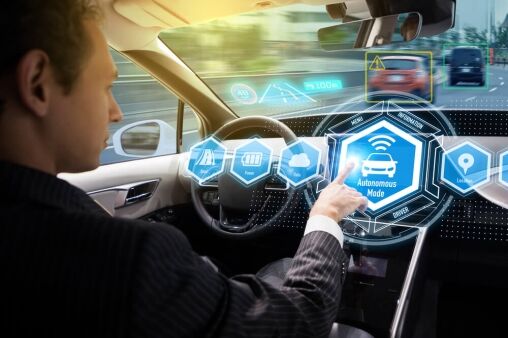
As self-driving features become increasingly common in new vehicles, the rate of motor vehicle collisions involving self-driving cars is only going to rise. This raises a critical question: Who bears self-driving car accident liability? The answer will depend on factors such as the cause of the collision and whether the self-driving vehicle’s operator was able to intervene and take control in time to prevent a crash.
Who Is Liable in a Self-Driving Car Crash?
Various parties may bear responsibility for a car crash caused by a self-driving vehicle. The vehicle’s manufacturer may be responsible for a crash that occurred due to a design defect in the vehicle or its software that caused the car to make an unsafe maneuver that led to a collision. The operator behind the wheel of the self-driving vehicle may also be liable for the crash if they failed to intervene and take control of the car when it made an error or began to make unsafe maneuvers.
Product Liability vs. Human Error
Liability for a car collision involving a self-driving vehicle will depend on whether the crash occurred due to a defect in the self-driving vehicle or because of operator error. When a design defect in the self-driving car or its software causes the vehicle to make an unsafe maneuver or otherwise not drive according to the rules of the road, victims of a resulting crash may have product liability claims against the car’s manufacturer. However, self-driving cars usually have operators behind the wheel who can take manual control of the vehicle when necessary to prevent a crash. Thus, a collision may occur due to human error when an operator had sufficient time to recognize the need to take control of the vehicle but failed to do so due to negligent oversight or decision-making.
When to File a Personal Injury Claim
You should file a personal injury claim as soon as practical after suffering injuries in a motor vehicle collision caused by a self-driving vehicle. Under Illinois’ statute of limitations on personal injury claims, you have two years to file a lawsuit to seek compensation for injuries you suffered in a car crash. Furthermore, suppose the collision occurred due to a defect in the self-driving car. In that case, the statute of repose on product liability claims requires you to file your lawsuit within twelve years of delivery of possession by a seller or ten years from the date of first sale to the initial user, whichever occurs first, regardless of whether the statute of limitations expires after that date.
Contact a Chicago Self-Driving Car Accident Attorney
If you’ve been hurt in a car crash involving a self-driving vehicle, you need experienced legal counsel to help you demand fair compensation for what you’ve suffered. Contact Salvi, Schostok & Pritchard P.C. today for a free, no-obligation consultation with a knowledgeable personal injury lawyer in Illinois. We’ll review your case, explain the various parties that could be liable, and discuss what we can do to help you during this challenging time.
